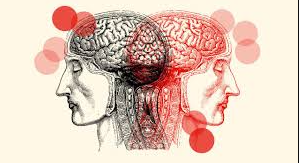Health Ministry Attributes Changes to Work Arrangements and COVID-19 Restrictions
SINGAPORE: A recent survey by the Ministry of Health (MOH) reveals that while physical activity levels in Singapore fell during the COVID-19 pandemic, there was a notable increase in the willingness of residents to seek help for mental health issues. The findings of the National Population Health Survey 2021 were released on Tuesday (Dec 20) and reflect the health and risk factors of Singapore residents aged 18 to 74, based on self-reported data collected through household interviews.
Conducted between July 2020 and June 2021, the survey captures the health landscape during Singapore’s Phase 2 and Phase 3 reopening, amidst ongoing COVID-19 safe management measures. The latest data is compared to the 2019 edition of the survey, with additional health examination data included every two years.
According to the survey, only 71.1% of residents achieved sufficient physical activity—defined as at least 150 minutes of moderate-intensity activity per week—marking a significant decline from 80.1% in 2019. Commuting was the primary contributor to total physical activity at 47%, with the remainder divided almost evenly between work-related activities and leisure pursuits such as sports and recreation.
In 2021, only 32.5% of residents reported engaging in regular exercise during their leisure time, a slight decrease of 2.7 percentage points from the previous survey. The MOH attributed this decline to new work arrangements, including work-from-home and hybrid setups, as well as restrictions on sports facilities and recreational areas.
The drop in physical activity was observed across various age groups. Young adults aged 18 to 29 had the highest levels of sufficient physical activity at 76.3%, while older adults aged 60 to 74 had the lowest at 65.1%. To address these concerns, MOH plans to enhance the National Steps Challenge as part of the Healthier SG initiative to promote more active lifestyles, though specific details on enhancements were not provided.
MENTAL HEALTH
The survey also indicated a shift in attitudes towards mental health, with a growing willingness among Singapore residents to seek professional help for stress. The proportion of individuals open to seeking help increased to 58.3% from 47.8% in 2019, reflecting greater public awareness and reduced stigma surrounding mental health issues.
Despite this progress, the MOH noted the need for stronger informal support networks, as the willingness to seek help from friends, family, and colleagues fell significantly from 74.5% in 2019 to 69.1% in 2021. Seniors aged 60 to 74 were identified as the least willing to seek assistance from either healthcare professionals or informal networks. Additionally, women demonstrated a higher propensity to seek help compared to men.
HEALTH SCREENINGS, VACCINATIONS, AND SMOKING
The pandemic also saw a decline in participation in chronic disease screenings, potentially resulting in significant undiagnosed conditions. Participation rates fell from 66.3% in 2019 to 59.2% in 2021, with screenings for breast, cervical, and colorectal cancers also experiencing lower attendance.
The decrease in health screenings may be attributed to the deferment of non-urgent medical services during the pandemic. Although self-reported rates of diabetes, high cholesterol, and high blood pressure remained comparable to 2019, the MOH advised caution given the lower screening participation rates.
In a positive development, seniors aged 65 to 74 showed increased uptake of flu and pneumococcal vaccinations, rising by 8.2 and 12.1 percentage points, respectively, compared to 2019. The prevalence of daily smoking and binge drinking remained stable at 10.4% and 9.6%, respectively. However, the survey did not include data on e-vaporisers, which are banned in Singapore.
To combat smoking initiation among the youth, the MOH plans to bolster educational initiatives in schools. A digital campaign addressing the health risks associated with vaping is scheduled for launch in early 2023.








